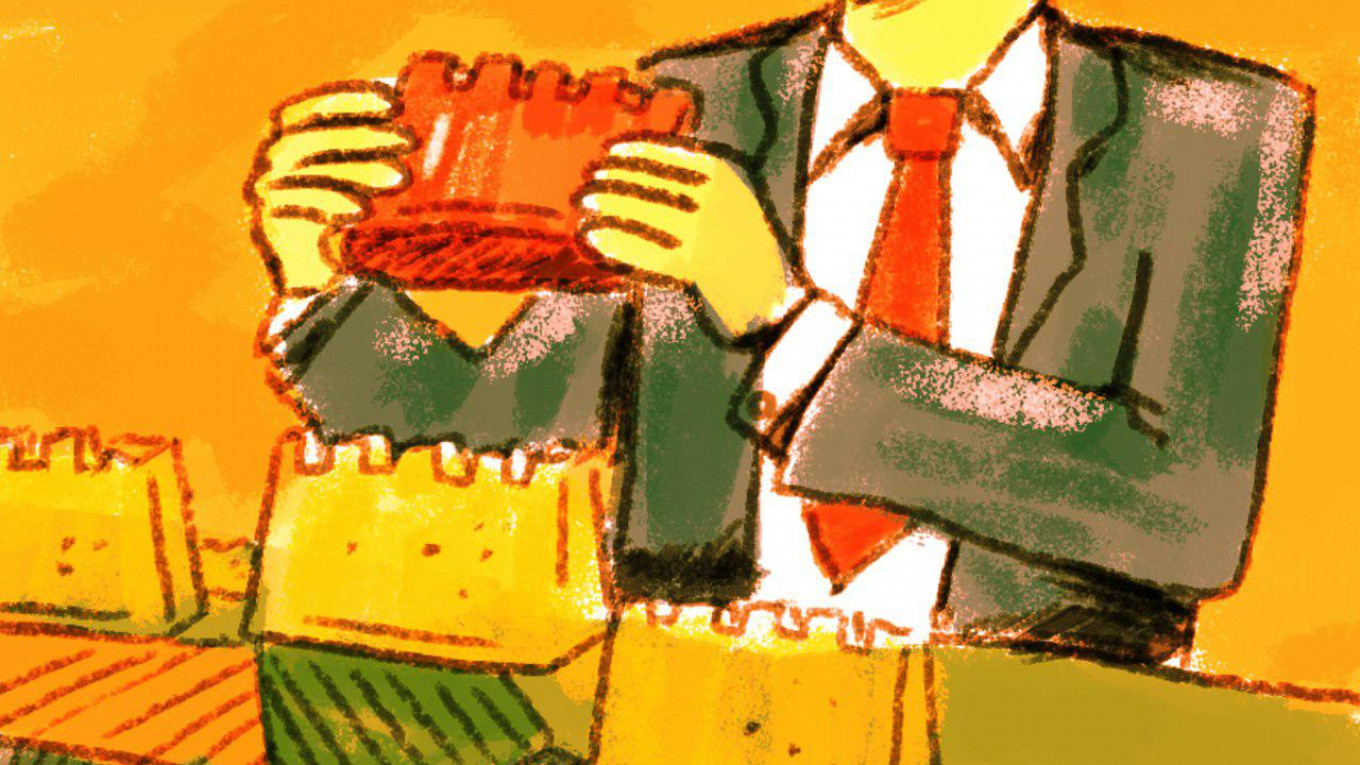I didn’t believe my ears when I first heard about the immigration ban. I was taking a piano class at Stanford University in California. An Iraqi student sitting next to me explained to the professor that he was too busy to practice that week.
My thoughts switched to Arif, my Stanford Journalism Fellowship classmate, who has a Sudanese passport. Later, I heard the story of another friend, a green card holder from Trinidad, who was detained for three hours on the U.S. border in Florida.
As one of thousands of international students across America, recent immigration discourse has left me frustrated. I was born and worked as a journalist in Russia, where nationalism is one of our historical pain points. That’s why I know it is dangerous to let the genie out of the bottle. “Even Putin would not build a wall!” I suddenly started saying to myself.
Here's where the interesting parallels start. Just as Vladimir Putin and Donald Trump have many things in common, so Russia and the United States share common ground on immigration issues. Much like the United States, Russia has its own “Mexico.”
Russia’s “Mexico” are the former Soviet republics, now independent countries in Central Asia: Uzbekistan, Kyrgyzstan, and Tajikistan. There are millions of migrants from these countries in Russia — legal and illegal — who suffer from all types of discrimination, hate speech and abuse. They are stopped on the street by police, asked for bribes and detained if they have no money.
Russia’s “Mexico” are the former Soviet republics, now independent countries in Central Asia: Uzbekistan, Kyrgyzstan, and Tajikistan.
One of the most terrifying examples of this happened in 2015, in St. Petersburg, when a five-month-old Tajik kid was taken away from his young mother and was later found dead under suspicious circumstances. The family was detained for breaking the immigration law.
Many Russian people think illegal migrants are evil and responsible for a wide range of crimes.
Like the United States, Russia has a “Muslim issue.” The roots of Russia’s terrorism sometimes lead to Chechnya and federal republics in the North Caucasus, parts of Russia similar to the American states. No one can ban the citizens of a country from living in and traveling through their own country. But some aggressive Russian nationalists would probably ban ethnic Chechens from traveling to Moscow if they had the chance. In fact, the idea to surround Chechnya with a wall was popular with the public and among politicians in the late 1990s.
Putin and Trump’s immigration policies are very different.
Since the battle phase of the Second Chechen War ended in 2000, the Kremlin has been known to use very cautious rhetoric when discussing issues of nationalism. Whenever the topic of crime committed by migrants appears in the news, the whole spectrum of politicians, from old school Communists to emerging opposition leader Alexei Navalny, waves immigration as a red flag. They come out with a “simple” solution: to create a visa regime for Central Asian countries.
Politicians can gain points in this area, as recent political events have shown. The theme of immigrants who are taking prosperity and wealth away from Russians causes a lot of anger among some sectors of the population.
One winter day in 2010, 50,000 protesters, many of them skinheads, came out to march just one hundred meters from the Kremlin walls after a young man was killed in clashes between nationalist football fans and men from the North Caucasus.
Putin has so far been the only Russian politician who hasn’t played this game. The Kremlin always skirts around the topic, coming up with half-solutions, and simply waiting until people have forgotten their anger. Bans, or even visas, for Central Asians, have never become a real talking point on the Kremlin’s agenda.
What about the wall around Chechnya, with its predominantly Muslim population? Seventeen years have passed since Putin promised to kill terrorists in their bathrooms, and the Kremlin’s relationship with Chechnya has warmed up. The Chechen republic receives funds from the federal budget, the Chechen diaspora feels safe and comfortable in Moscow, and aggressively develops businesses there.
Publicly, Putin often speaks cautiously when he touches on the “Islamic issue,” especially compared with how he blames the West for everything bad that has happened in Russia and the world.
Putin plays this game differently than Trump, not because he’s a humanist, but because he’s a rationalist. Because he has established strong vertical relationships with the leaders of the Caucasian republics based on his personal and military power, those republics typically provide him and his party with over 80 percent of the popular vote in any given election. Meanwhile, while educated, rich and westernized Moscow certainly gives him less than 50 percent of the vote.
What about migrants from Central Asia? They’ve always been a source of cheap labor, and they improve the demographic picture of Russia, where the native population tends to die faster than it reproduces.
For good or bad reasons, in domestic policy, Putin behaves like one of the least nationalist Russian leaders since Ivan the Terrible.
Elizaveta Osetinskaya is a Russian editor who ran the newspaper Vedomosti (JV by FT and WSJ), the Russian edition of Forbes and RBC media holding. She is currently a JSK fellow at Stanford.
A Message from The Moscow Times:
Dear readers,
We are facing unprecedented challenges. Russia's Prosecutor General's Office has designated The Moscow Times as an "undesirable" organization, criminalizing our work and putting our staff at risk of prosecution. This follows our earlier unjust labeling as a "foreign agent."
These actions are direct attempts to silence independent journalism in Russia. The authorities claim our work "discredits the decisions of the Russian leadership." We see things differently: we strive to provide accurate, unbiased reporting on Russia.
We, the journalists of The Moscow Times, refuse to be silenced. But to continue our work, we need your help.
Your support, no matter how small, makes a world of difference. If you can, please support us monthly starting from just $2. It's quick to set up, and every contribution makes a significant impact.
By supporting The Moscow Times, you're defending open, independent journalism in the face of repression. Thank you for standing with us.
Remind me later.








